One and done, son Three Manitoba boys got their chances to lace up their skates, pull on Jets jerseys and realize their lifelong dreams during the 1980s, and then...
Read this article for free:
or
Already have an account? Log in here »
To continue reading, please subscribe:
Monthly Digital Subscription
$0 for the first 4 weeks*
- Enjoy unlimited reading on winnipegfreepress.com
- Read the E-Edition, our digital replica newspaper
- Access News Break, our award-winning app
- Play interactive puzzles
*No charge for 4 weeks then price increases to the regular rate of $19.00 plus GST every four weeks. Offer available to new and qualified returning subscribers only. Cancel any time.
Monthly Digital Subscription
$4.75/week*
- Enjoy unlimited reading on winnipegfreepress.com
- Read the E-Edition, our digital replica newspaper
- Access News Break, our award-winning app
- Play interactive puzzles
*Billed as $19 plus GST every four weeks. Cancel any time.
To continue reading, please subscribe:
Add Free Press access to your Brandon Sun subscription for only an additional
$1 for the first 4 weeks*
*Your next subscription payment will increase by $1.00 and you will be charged $16.99 plus GST for four weeks. After four weeks, your payment will increase to $23.99 plus GST every four weeks.
Read unlimited articles for free today:
or
Already have an account? Log in here »
Hey there, time traveller!
This article was published 25/05/2020 (2028 days ago), so information in it may no longer be current.
Archibald (Moonlight) Graham got the second chance Dave Chartier, Ron Loustel and Darren Boyko never did, but fiction is far more forgiving than the oft-harsh reality of pro sports.
The trio of Manitoba-born-and-raised hockey players, not unlike the New York Giants rookie outfielder 115 years ago, had no way of knowing their respective NHL debuts at the old Winnipeg Arena would be not only a first but also a last.
Graham made his major-league baseball debut on June 29, 1905, patrolling right field the last two innings of a lopsided 11-1 win over the Brooklyn Superbas, but never made a plate appearance. It was his only appearance in the big leagues, and led to his inclusion as a character in W.P. Kinsella’s 1982 novel, Shoeless Joe, and later in the Kevin Costner movie Field of Dreams, where Graham got the opportunity to don a Giants uniform on a magical diamond carved out of a cornfield.
Chartier, Loustel and Boyko each got a meagre taste of the NHL with the Winnipeg Jets in the 1980s but didn’t have what it took to stay in the league, never suiting up in The Show again. Any disappointment suffered back in the day has long since vanished and life, indeed, took the trio on markedly different paths since that quick cup of coffee in the bigs.
***
Dave Chartier was a “a half-ton playing against a bunch of one-ton trucks,” yet there he was on the last evening of 1980, suiting up for the Jets at the old barn on Maroons Road in front of about 14,000 fans, including dozens from his hometown, the farming community of St. Lazare, all doing their best to spur on an NHL squad of historically woeful proportions.
The 19-year-old had skated with the Brandon Wheat Kings in a gritty Western Hockey League matchup with the Regina Pats just 24 hours before receiving an emergency summons from the NHL team that drafted him in the 10th round (191st) overall just months before. Chartier says he was told by Jets general manager John Ferguson he’d actually play a pair of games for the big club before being returned to his junior team.
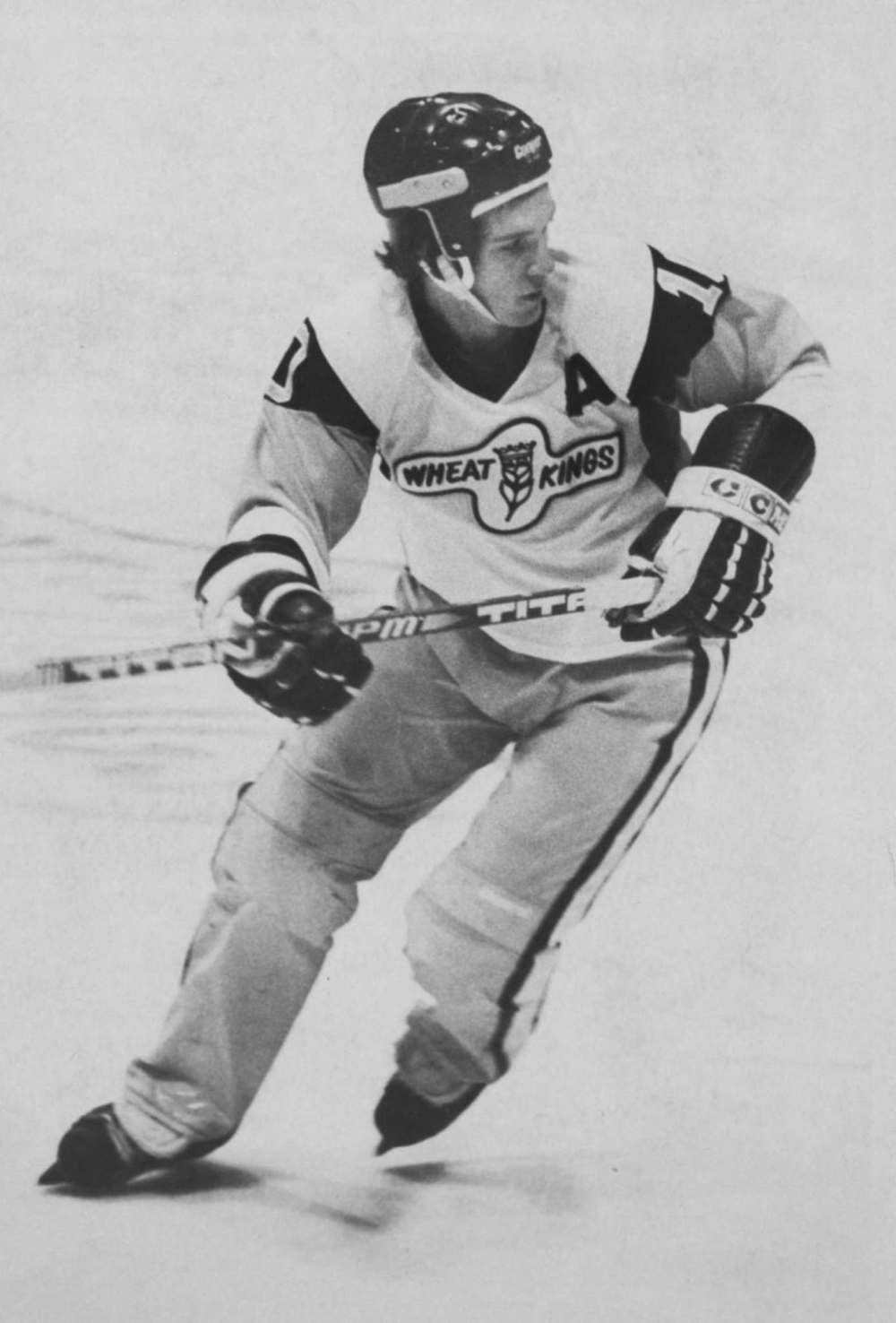
It was New Year’s Eve and the Washington Capitals were in town. Chartier admits he had an empty tank when he first walked into the dressing room and joined a group that included Morris Lukowich, Dave Babych, Doug Smail and Jimmy Mann, but got a a major shot of adrenaline when he pulled on the Jets jersey.
“It was intimidating, for sure. I had no time to adjust to that kind of limelight. These were men, they had legs like tree trunks. I was just a baby,” he says, speaking by phone from his home in Binscarth, located about 340 kilometres northwest of the Manitoba capital.
“I remember my stall being all ready to go with my jersey there. There was a chalk board with who was playing and who was on the Washington side.
“I remember during the game Mann took his water bottle and squirted a big guy named Archie Henderson in the face when he skated by. And the game was on. It was rough. I remember there was a guy named (Bob) Kelly, and I had a chance to run him but didn’t… I should have run him. I had a few shifts. It was a fun night.”
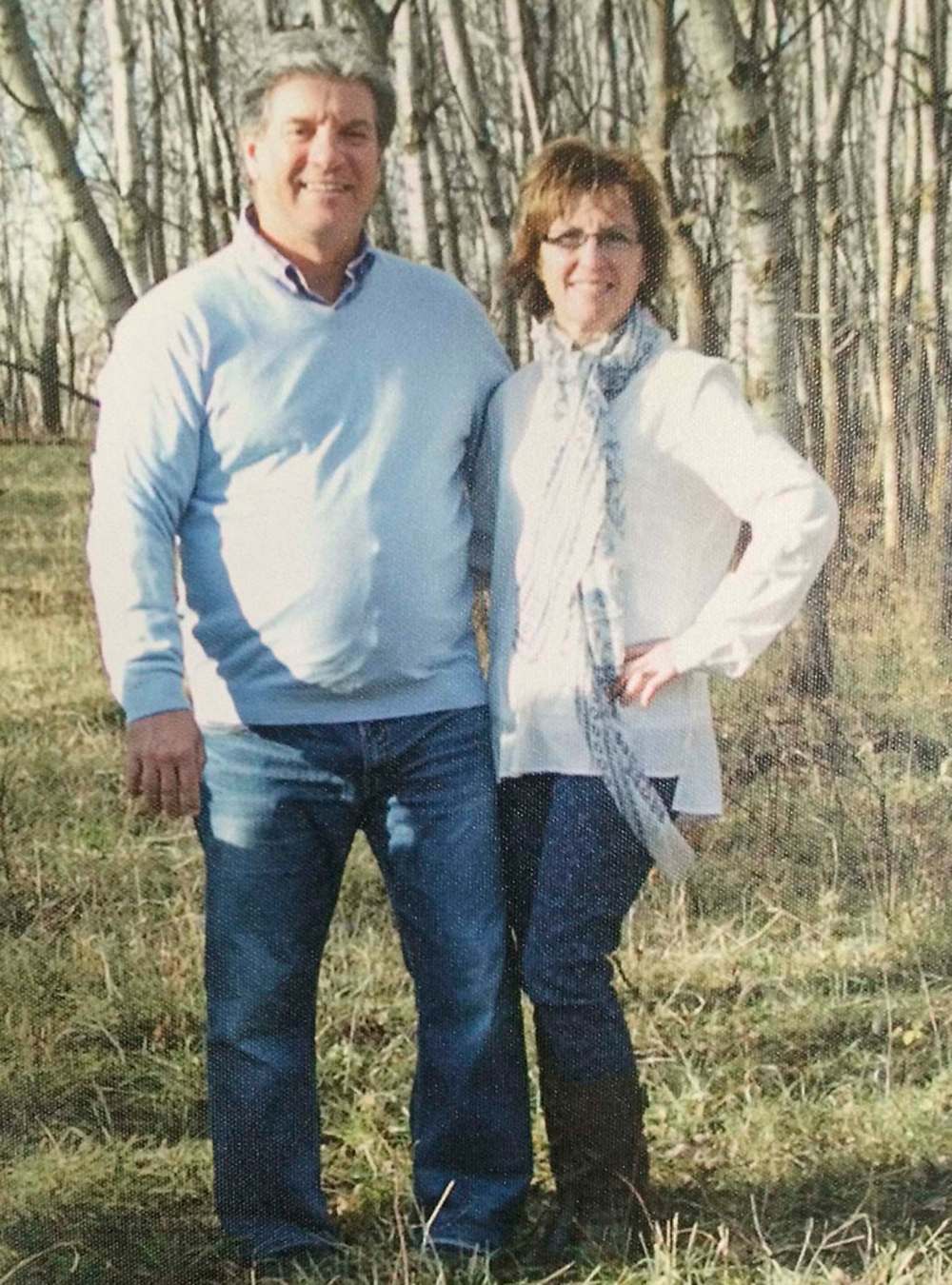
Chartier, listed then at 5-10, 170 pounds, didn’t get his name on the scoresheet, an eventual 5-3 victory for the Caps — one of the 57 defeats the hapless Jets would muster that dreadful year. The Wheaties needed their scoring leader back in a hurry, so Chartier had his time with the Jets cut short and he headed west down the Trans-Canada Highway. That season, he’d finish eighth in WHL scoring with 64 goals and 124 points.
Chartier attended Jets training camp in the fall of 1981 but spent the entire season with the team’s Central Hockey League affiliate, the Tulsa Oilers, scoring 18 goals in 74 games. He rejoined the Jets for the playoffs as a “black ace” but didn’t dress in a short series against the St. Louis Blues. He spent the next two injury-plagued seasons with the organization’s new American Hockey League affiliate, the Sherbrooke Jets, but by that point was off the NHL team’s radar.
“I was always hoping there’d be another game. I was doing fairly well in Sherbrooke and figured I might have had a chance, but I don’t think they believed I was big enough or strong enough,” he says. “I played half the year (1983-84) and they sent me to Fort Wayne for three weeks but I had enough and came back home. I knew I was finished with hockey.”
Chartier has worked the last 34 years at the Mosaic Company potash mine in Esterhazy, Sask. He and his wife, Cheryl, have two kids, Nicholas and Sara, and a pair of grandsons, Cruz, 8, and Croix, 4. The now-59 year old says life has been good since that memorable moment almost 40 years ago.
“I don’t think I got a lot out of that one game. At the time, it was a job. And we all move on from job to job over the years,” he says. “I play a lot of senior hockey and some of the guys still chirp me about being an NHLer. It’s pretty funny, actually. But every once in a while I can still flip the switch.”
Chartier earned a $25,000 signing bonus with the Jets, but the one-time payment he received for that special New Year’s Eve assignment meant so much more. “I got paid $275 for that game and do you know what I did with the money? I bought a wedding ring. Best investment of my life.”
***
Ron Loustel says he could have, would have, should have. In reality, the odds were stacked entirely against the talented junior goaltender on the evening of March 27, 1981.
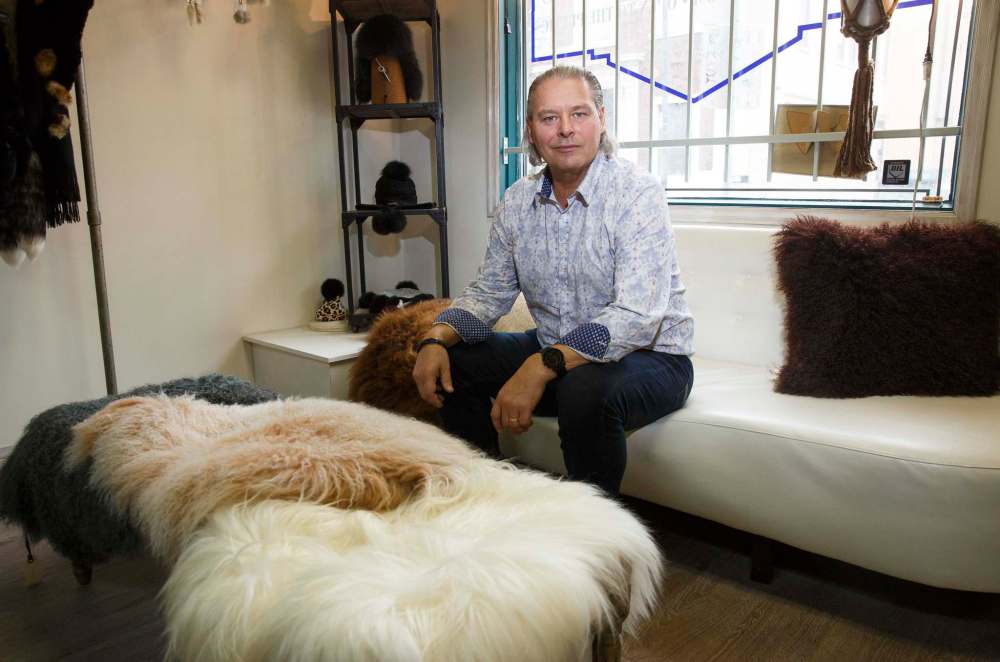
Selected in the sixth round (107th overall) of the 1980 draft, he had played the lion’s share of the season for the Saskatoon Blades and was one of the lone bright spots on a bad WHL team. When Ferguson called his name out at the draft inside the Montreal Forum, Loustel was sitting in class at Nutana Collegiate in Saskatoon.
Squeezing everything out of marginal puckstoppers such as Pierre Hamel, Michel Dion and Lindsay Middlebrook, the Jets GM turned to the teen on an emergency recall (starter Markus Mattsson was ill) against the playoff-bound Vancouver Canucks. The Blades’ season was done and Loustel was already back in Winnipeg practising with other Jets prospects.
“I found out during the morning skate. I guess they waited to see whether (Mattsson) would recover from his sickness and then told me I was playing. You’re surprised at first, then the excitement hits and then you’re nervous right before the game — in that order,” he says. “My parents were there. I had a lot of friends and family there that night.”
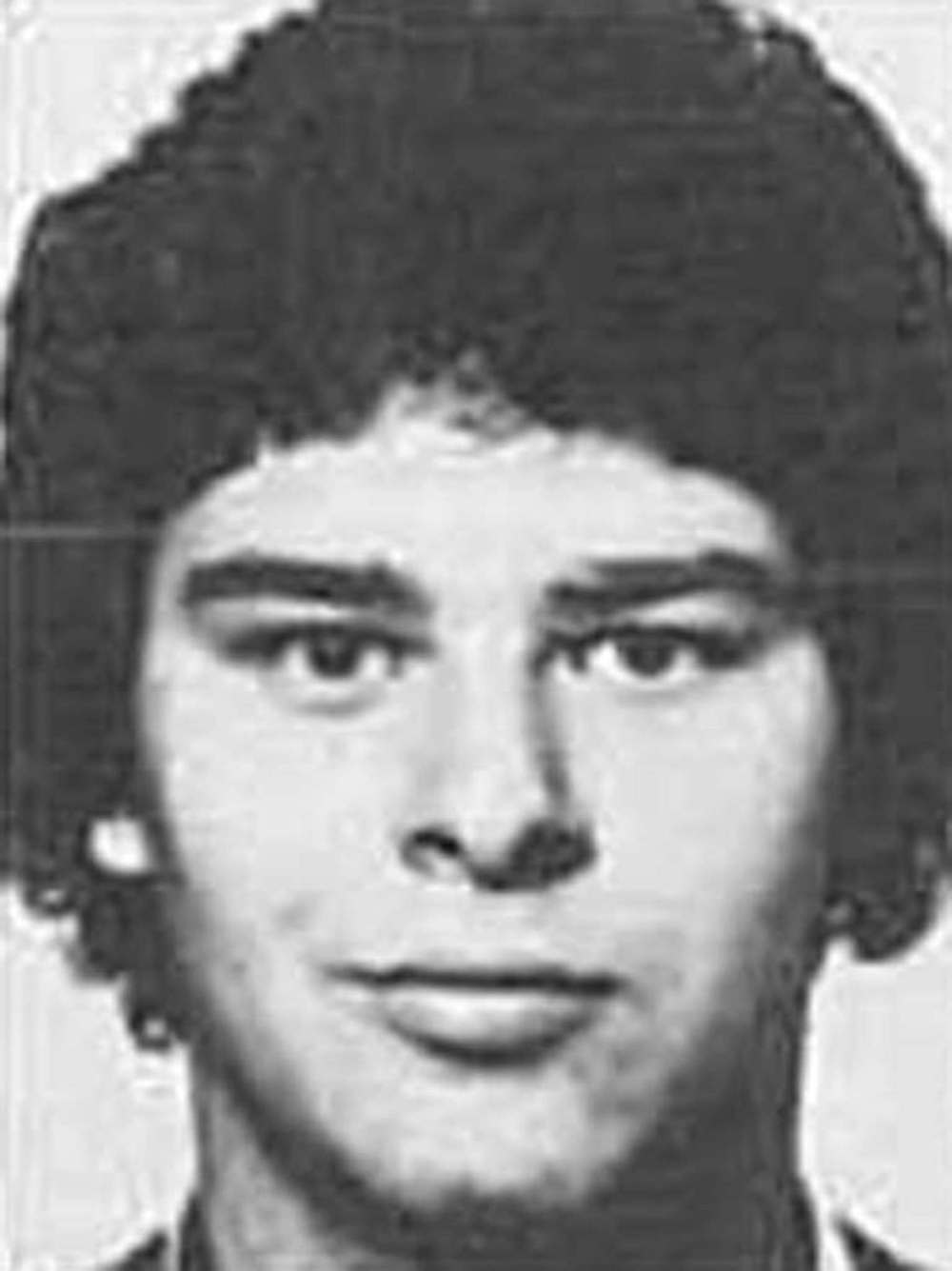
Poised to face Vancouver in his NHL debut just 20 days after his 19th birthday, he was handed the unenviable task of backstopping the worst team in the league. With only a handful of games to go in a torturous 1980-81 campaign, the Smythe Division team was striving for just its 10th victory to go with 53 defeats and a dozen ties.
The Jets had long since given up the fight, and the 6-0, 185-pound masked man would pay the consequences. History will show Loustel turned aside a sensational 41 shots that night. It will also show the Canucks took 51 in a 10-2 blowout. By all accounts, including his own, the Gilbert Plains product who was raised in Winnipeg was hung out to dry.
“Pretty much thrown to the wolves, and after that it was tough to ever get back in there again,” remembers Loustel, 58. “It was a weird night. They got three goals in the first period. There were a lot of shots. It was a busy night. Our defence wasn’t the best, and it was like the team gave up halfway through the game.”
Dave (Tiger) Williams, the league’s all-time penalty-minute leader, led the way for the Canucks, swatting in a pair of goals. “If I recall, they were garbage goals. He was standing in the crease, his classic goals, you know?” says Loustel.
The Jets defensive corps that night was led by rookie Dave Babych, who finished a minus-three, and 32-year-old veteran Barry Long, who was a minus-six when the final horn sounded. Rounding out the second-rate blue-line crew were Moe Mantha, Don Spring, Bill Whelton and Mark Plantery.
“Morris Lukowich said sorry to me after the game, and Tiger Williams toward the end said, ‘You were all alone, basically,'” Loustel says. “You always wish you’d made more saves, done this or that differently. It is what it is.”
Breakaways, odd-man rushes and even a two-on-none, Loustel was under siege.
“I remember the buzzer at the end of the game and the relief of it being over. That was a hot arena and I was completely drained after that.”
Loustel attended a pair of training camps in Winnipeg after that but never pulled on a Jets jersey again. He played four full seasons in the WHL (1979-83) and finished with three pro games under his belt — one each with Winnipeg, Tulsa (CHL) and Fort Wayne (IHL). His last stop was not far from home, appearing in 28 games for the Wheat Kings during the 1982-83 campaign before calling it quits.
Loustel had worked during several offseasons at Sydney Gitterman Furs on Princess Street and bought the business in the mid-’80s after his retirement from hockey.
“It leaves a bit of a sour taste in your mouth. About six months, you don’t touch your equipment, you don’t look at it, you don’t go and play with friends,” says Loustel, who’s remarried and has two daughters, Monika, 31, a lawyer in Vancouver, and Madison, 27, a Winnipeg accountant. He also has two young granddaughters, Charlotte and Lyla.
“Then, after that you come to the realization that life goes on,” he says. “The Jets alumni is pretty active in town and we try to get together for ice times maybe once a month. I don’t play that much anymore. Life’s been good. I still think about those days every once in a while.”
***
Darren Boyko maintains he never received the kind of advice the Jets’ current head coach offers to each and every rookie making his NHL debut with Winnipeg. In the grand scheme of things, it might not have mattered back on Oct. 19, 1988 — but it certainly couldn’t have hurt.
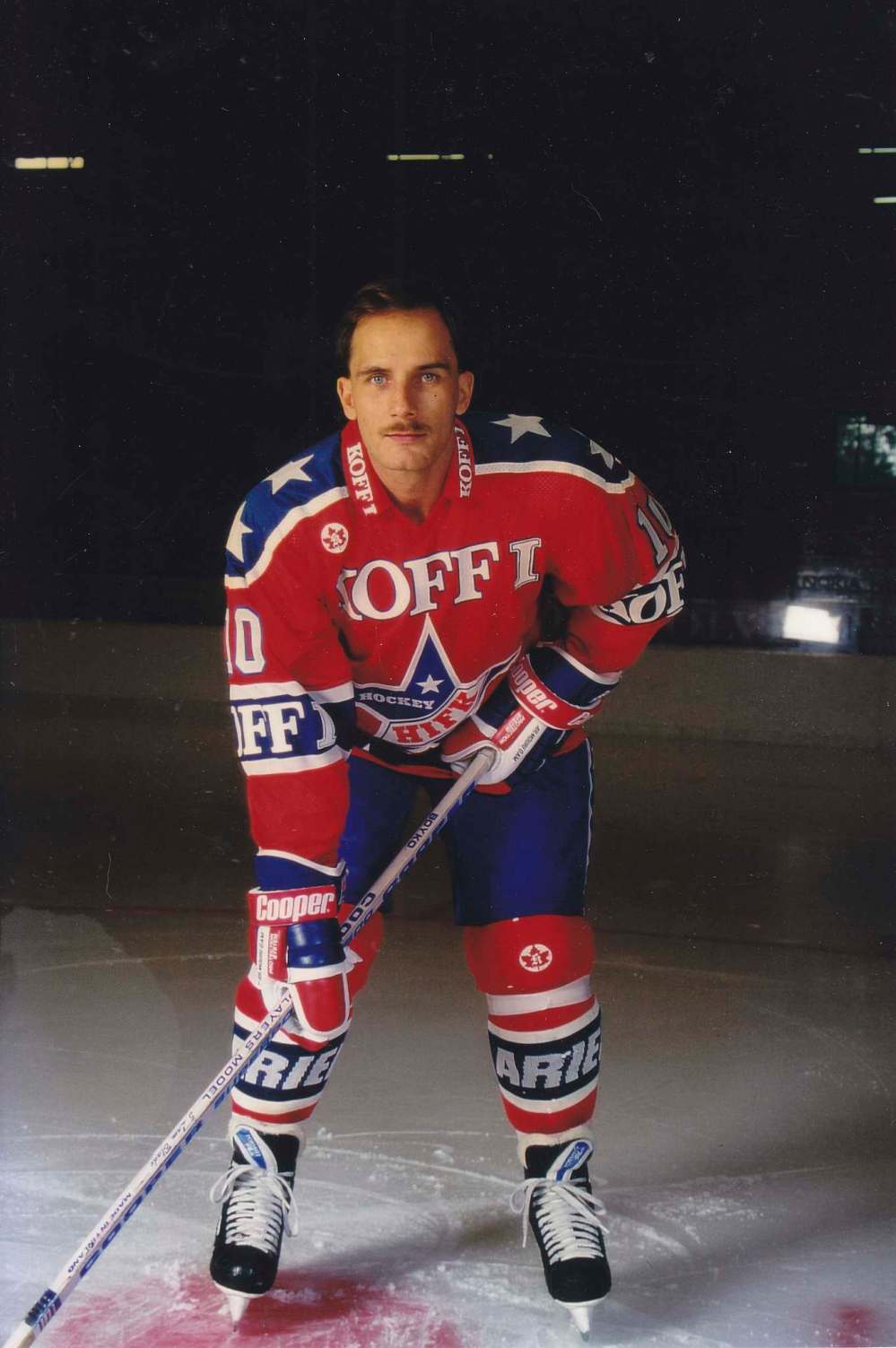
“I look at Paul Maurice, the way he welcomes new players and tries to acclimatize them into the environment. He’s famous for telling guys, ‘Enjoy your first game, it only happens once.’ That wasn’t the case for me. It went just horribly. If I had known it was my one and only game, I would have soaked it in a bit more,” says Boyko, 56.
Then-Jets head coach Dan Maloney assigned the 5-9, 170-pound centre just a handful of shifts that Wednesday night against the visiting Boston Bruins, and in those few, fleeting minutes the only stat he registered was a minus-one. Not exactly the fulfilment of a dream he’d harboured since he laced up the blades on the massive rink his father constructed on the family’s St. Vital property.
“On my last shift, this is the way it played out. There was a faceoff at centre ice. I won the faceoff back, the pass went D to D and one of the defencemen fell, the Bruins came down and scored, and I was caught flopping around in front of the net. That was it,” he recalls. “I remember hearing later, maybe the next year, that the coaching staff blamed that goal on me, which wasn’t the case.”
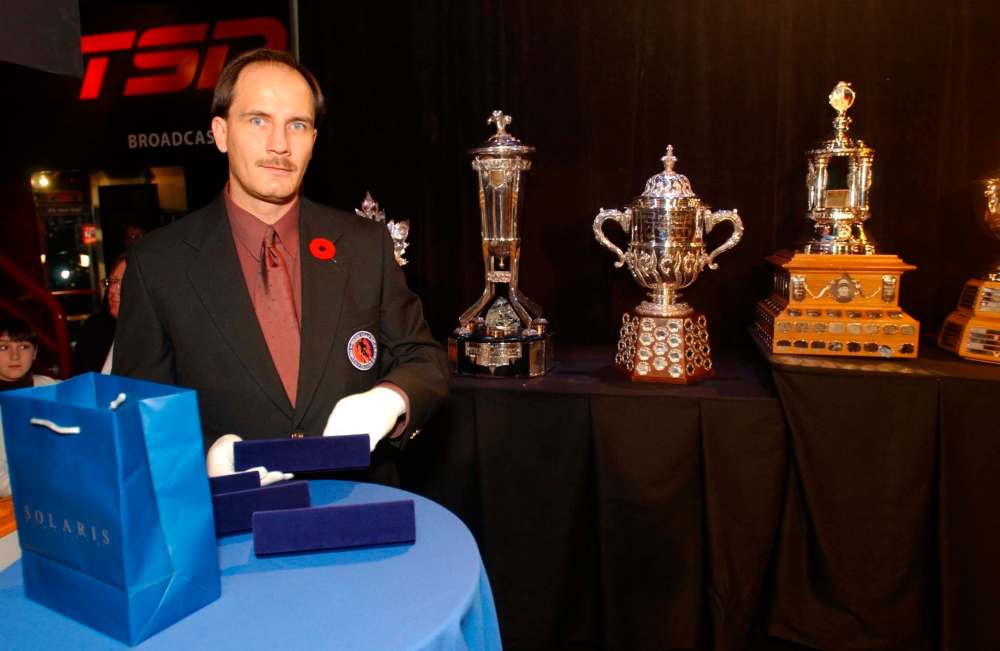
He was a fourth-line centre, playing behind Dale Hawerchuk, Thomas Steen and Randy Gilhen, and barely got on the ice. A Bruins team that included Ray Bourque, Cam Neely and Craig Janney posted a 5-2 victory, dropping Winnipeg’s early season record to just 1-3-2.
Despite a one-game NHL career, Boyko has a major presence in two prestigious hockey halls of fame.
The former Winnipeg Warriors (WHL) star, who was passed over in consecutive NHL entry drafts, holds legendary status in Finland after playing 11 seasons. Initially, he considered spending just one year in one of Europe’s elite hockey leagues but, ultimately, suited up in 477 contests, accumulating 171 goals and 407 points (1985-96). Nearly a decade after leaving Helsinki, he was inducted into Finnish Hockey Hall of Fame (2006).
After retirement — he split his final pro season between the German and Swedish leagues — Boyko really wanted to stay in the game. Armed with an international MBA, he applied to the NHL, the NHL Players’ Association, the International Ice Hockey Federation and the Hockey Hall of Fame in Toronto. He filled a contract position in 1997 with the Hall, co-ordinating a project to expand the international zone, and has been with the stately Canadian institution, housed in a magnificent former Bank of Montreal building in downtown Toronto, ever since.
Boyko met his wife, Patricia, at the University of Toronto and they’ve been married for nearly 35 years. Their oldest, son Christopher, and two daughters, Lauren and Sarah, were born overseas, while youngest daughter, Caroline, arrived when the family was re-established in Canada. The couple has three grandkids.
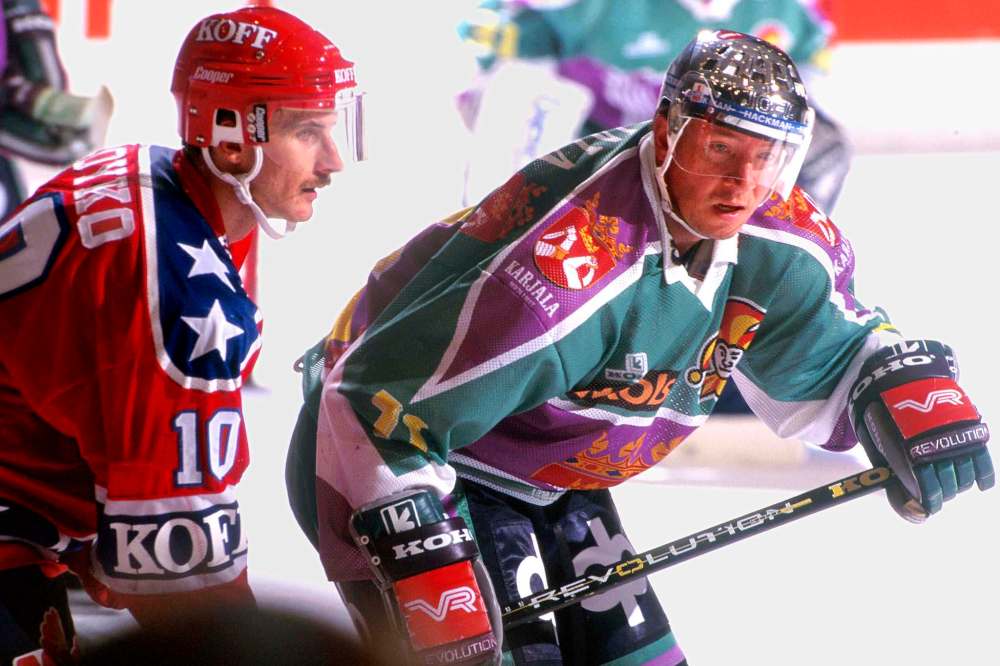
Boyko was just 24 and had played three full seasons in Helsinki in the summer of 1988 when he set his sights on the world’s premier league, the NHL. And in his mind — and to those in his inner circle — he was a better, smarter player than when he’d initially crossed the pond to play.
“It’s almost inevitable the longer you stay in the game, being on the ice sometimes twice a day, you’re going to improve,” he says. “I was scoring goals and was pretty responsible defensively. I thought the game really well and figured I could make in impact somewhere.”
The Jets and Philadelphia Flyers came calling but he signed a one-year, one-way deal with his hometown team, dressing in seven exhibition games. He made the club out of training camp but was a press-box spectator for the first two weeks of the regular season.
“I didn’t set the house on fire. I know I scored a goal in San Diego (Sept. 27, 1988) against Wayne (Gretzky) in an L.A. Kings uniform, and I maybe had three or four assists in those exhibition games,” he says. “I talked to Mr. Ferguson — what a great guy he was — and told him how disappointed I was, because the whole reason for me staying in Winnipeg was to play. He said, ‘OK, I’ll get you into a game.’ And it was a disaster.”
Boyko was one and done. He was cut from the team and used a clause in his contract to return to Finland.
“From my perspective, if you’re going to get a chance you’d like to think you’d be given a better look, maybe 10 games. But it doesn’t work like that for free agents and fringe prospects,” he says. “Then again, the scouts were high on me but the coach didn’t know me and I didn’t do enough to impress him.”
Before turning pro, Boyko played a pair of seasons with the U of T Varsity Blues (1983-85) — winning a national championship with head coach Mike Keenan. Iconic Winnipeg player agent Don Baizley orchestrated an overseas tryout for the St. Vital product, who would eventually become a perennial star with the HIFK Helsinki organization
“As I say, it took me a long time for the Finnish fans to say, ‘Get the hell home, Boyko. You’re finished,”’ he says, laughing. “Aside from the great family lifestyle of being a hockey player, I was able to get my under-graduate degree and then my MBA. It was a great environment for our family.”
jason.bell@freepress.mb.ca
Twitter: @WFPJasonBell

Jason Bell wanted to be a lawyer when he was a kid. The movie The Paper Chase got him hooked on the idea of law school and, possibly, falling in love with someone exactly like Lindsay Wagner (before she went all bionic).
Our newsroom depends on a growing audience of readers to power our journalism. If you are not a paid reader, please consider becoming a subscriber.
Our newsroom depends on its audience of readers to power our journalism. Thank you for your support.






